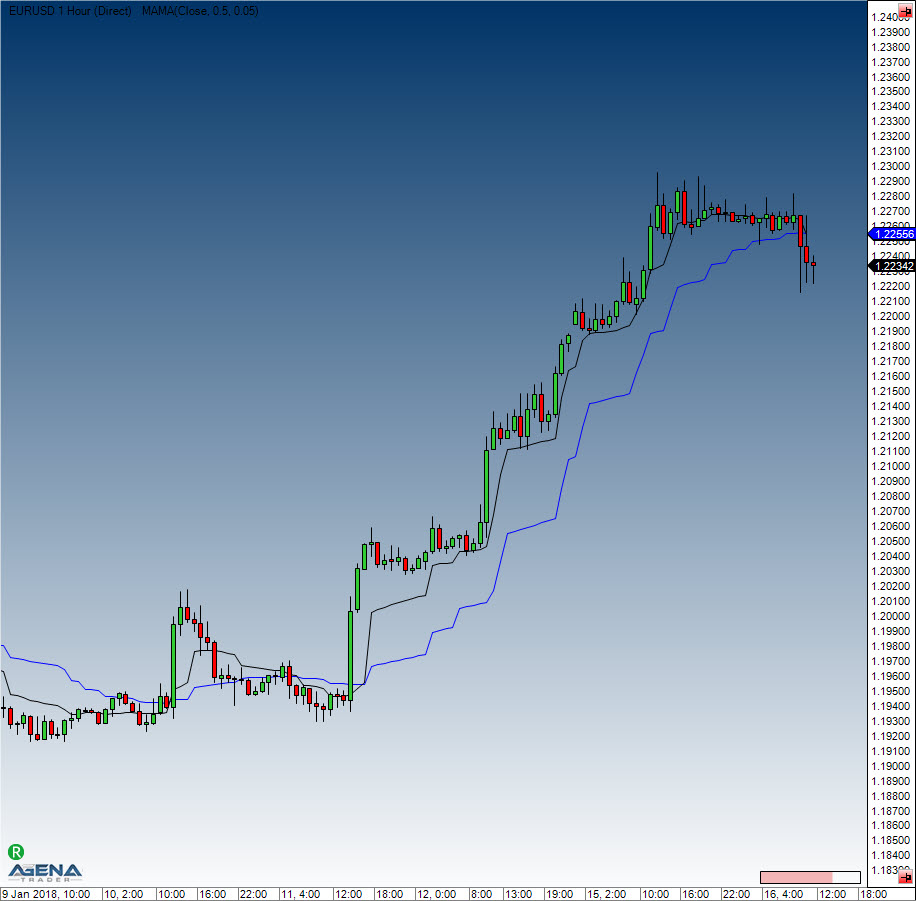MAMA - Mesa Adaptive Moving Average
Description
Interpretation
Further information
Usage
MAMA(double fastLimit, double slowLimit)
MAMA(IDataSeries inSeries, double fastLimit, double slowLimit)
MAMA(double fastLimit, double slowLimit)[int barsAgo]
MAMA(IDataSeries inSeries, double fastLimit, double slowLimit)[int barsAgo]
//Value of the Following Adaptive Moving Average (FAMA)
MAMA(double fastLimit, double slowLimit).Fama[int barsAgo]
MAMA(IDataSeries inSeries, double fastLimit, double slowLimit).Fama[int barsAgo]Return value
Parameters
Visualization

Example
Last updated